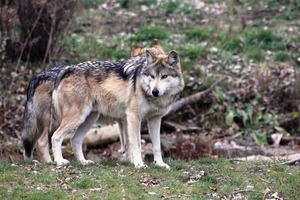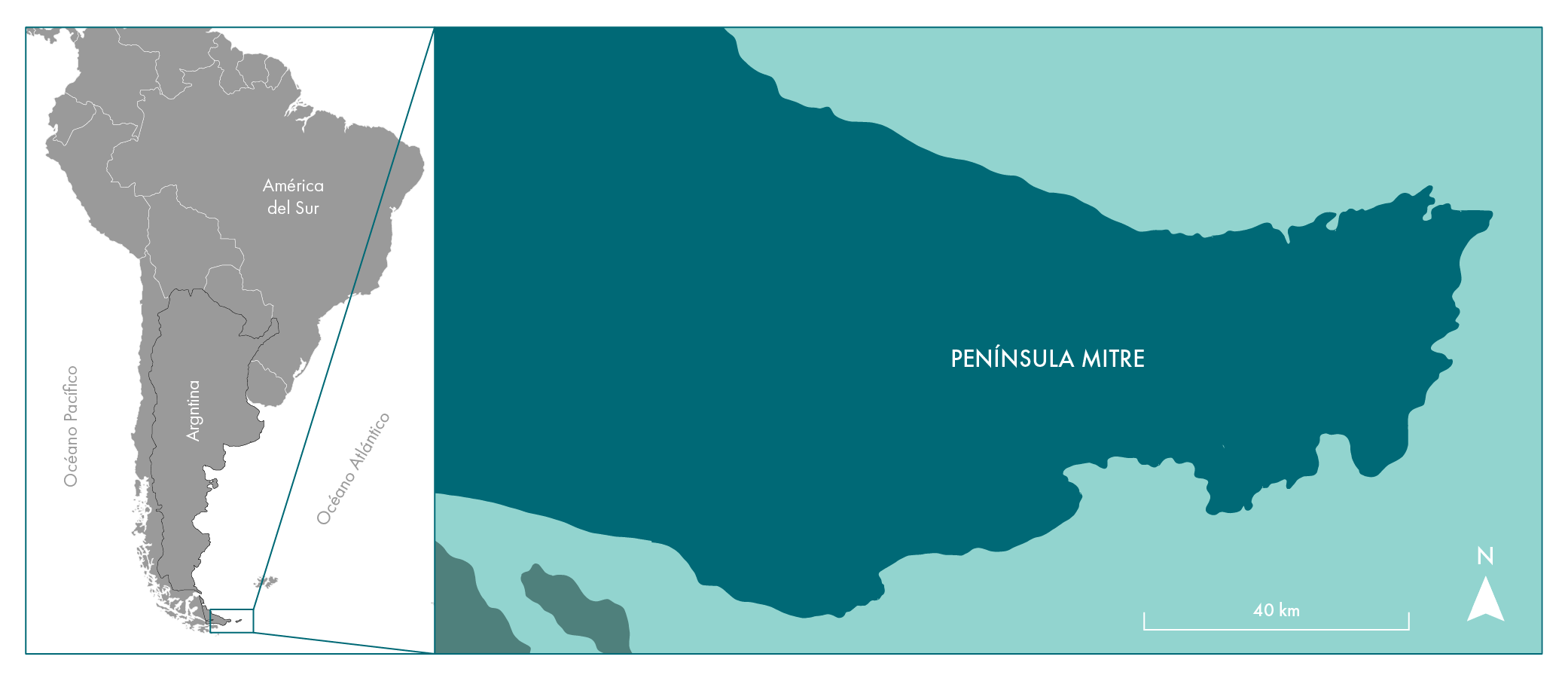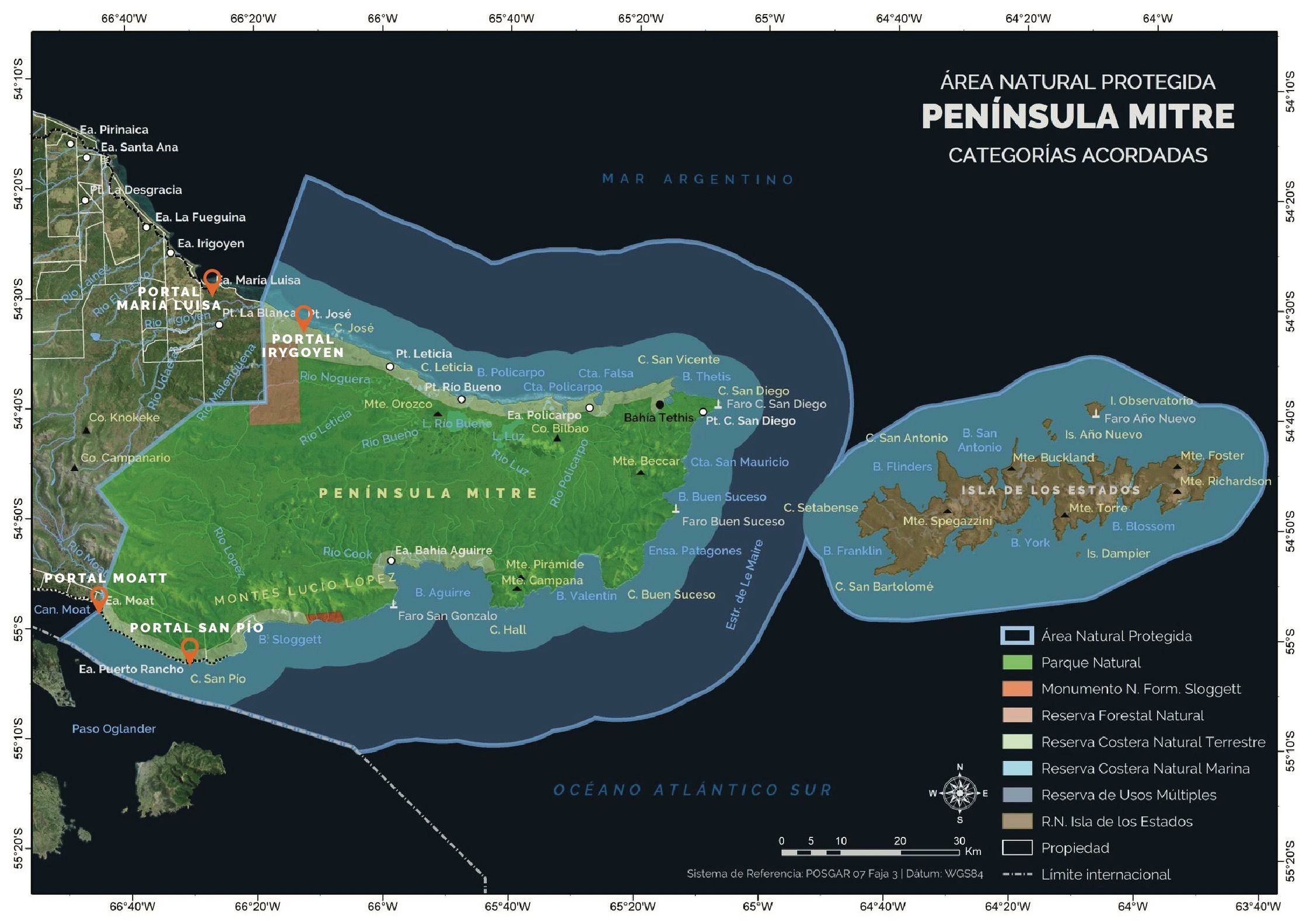An Urgent Call to Protect South America’s Largest Peat Reserve
In early 2022, the legislature of Tierra del Fuego is slated to vote on a proposal to protect Argentina’s Peninsula Mitre. Rewilding Argentina, Tompkins Conservation, and the Global Peatlands Initiative support the urgent protection of this valuable global ecosystem which features the largest peat reserve of South America.
At the southernmost point of South America, in the province of Tierra del Fuego, Peninsula Mitre features 84.4% of the peatlands in Argentina. Originally home to nomadic Haush people, this vast wetland remains one of the planet’s last great peatland reserves. Due to its harsh climate and geographic isolation, it is largely intact and devoid of human impact. Yet today, this fragile ecosystem has come under serious threat by off-road vehicles, illegal hunting, the predation of native fauna by domestic dogs, feral livestock, and the looting of historic and cultural antiquities.
Martina Sasso, Marine Program Coordinator for Rewilding Argentina, explains, “With the Covid-19 pandemic, wild and isolated places like Peninsula Mitre are suddenly facing an onslaught of unregulated activities abusive to its fragile ecosystems.”
This initiative proposes to protect 300,000 hectares of land, in addition to 200,000 hectares of coastal waters, home to half of Argentina’s kelp forest, another key ecosystem for fighting climate change.
Dianna Kopansky, UNEP’s Global Peatlands Initiative Coordinator sees the protection of Peninsula Mitre and its estimated 2,400 sq kms of peatlands as having global importance for nature and climate. Kopansky commented, “We need to work hard to keep the precious carbon locked in the ground in wet and healthy peatlands like those in Peninsula Mitre. It’s both urgent and important not only for climate stability, but also for the precious nature that calls this place home!”
Peatlands are the largest terrestrial organic carbon sink on the planet. They store twice as much carbon as all the world’s forests and also serve as refuges of biodiversity, including many threatened species. Since plant material does not fully decompose in wet peatlands, all the carbon that it fixes over time becomes stored, increasing its density over thousands of years. Healthy peatlands thus ensure climate stability in the long term by capturing and locking in carbon.
The peninsula’s unusual composition of moss species absorbs 4.5 times more carbon than other peatlands in Tierra del Fuego. The main species, Astelia pumila, forms “cushions” that act as an exceptional carbon sink. The bogs’ enormous water-holding capacity helps irrigate other ecosystems in times of drought, playing a key role in climate change adaptation and mitigation. The diverse terrain of this beautiful peninsula has unique ecological characteristics: the mountain ranges, valleys, forests, lakes, and rivers provide a bridge between different habitats and their species, including Andean condor, steamer duck, guanaco, red fox, southern river otter, and upland geese.
For more than 30 years, the community of Tierra del Fuego has sought to transform Peninsula Mitre into a protected area with the aim of advancing towards a nature-based economy. The protection of the peninsula is a local decision with a global impact on biodiversity loss and climate change.
Join us – share, learn, inspire, experience, and act for peatlands, people, and the planet. Follow and share using #PeatlandsMatter and #GenerationRestoration.
A driving force to curb the worldwide climate emergency and the biodiversity crisis, Tompkins Conservation protects, rewilds, and defends land and marine ecosystems in the Southern Cone through collaborating to create national parks and rewilding key species. Working with public and private partners, the organization has helped to create 13 national parks, protecting 14.5 million acres. The goal is to restore a healthy planet with big, wild, and connected landscapes where animals and plants can thrive. This also means helping to build robust communities that benefit from a healthy natural world.
Kristine McDivitt Tompkins and Douglas Tompkins (1943-2015) founded Tompkins Conservation after leading iconic American clothing brands—Kristine as longtime CEO of Patagonia Inc, and Doug as co-founder of The North Face and Esprit. Changing course in the early 1990s to focus on conservation, they became two of the most successful conservation philanthropists in history. After Doug lost his life in a tragic kayaking accident in 2015, Kristine has continued to build on their foundation. She is now the president of Tompkins Conservation and a UN Environment Patron of Protected Areas.
A 501(c)(3) public charity, Tompkins Conservation carries out conservation projects through the nonprofit network of Rewilding Chile and Rewilding Argentina.





